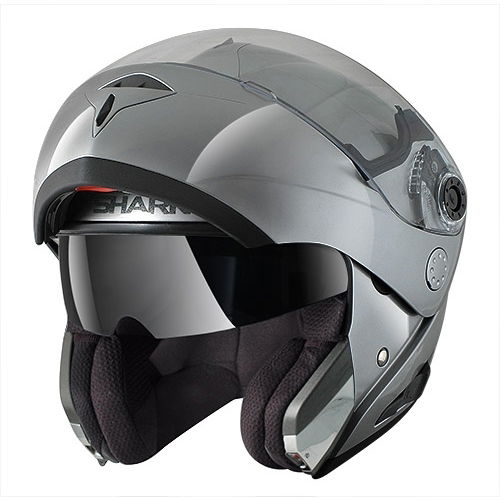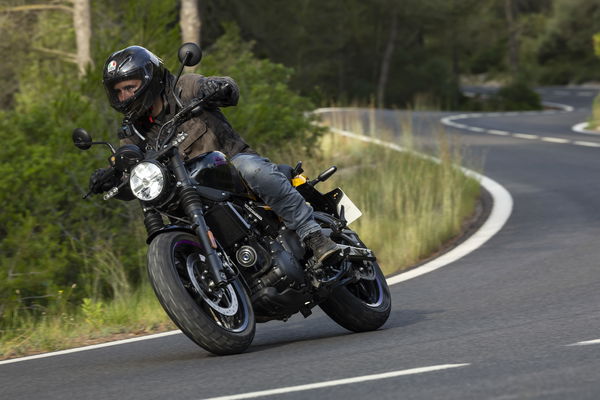959 Panigale review
On the Ducati 969 Panigale, one of the Italian manufacturer's smaller superbikes, we enjoyed the final few light, bright and dry days.
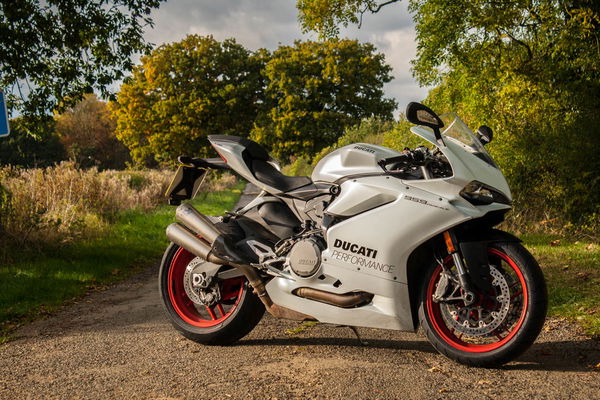
THIS TIME of year always makes me take stock of the summer’s riding and I can’t help but reminisce about dry sunny days on serpentine stretches of empty road.
Oh, the fun I had. Too bad it’s coming to an end as autumn clears a path for winter.
With that in mind, I wanted to give my summer of riding a send-off: one more weekend of enjoyment on my favourite roads before I reluctantly accept that the days are getting shorter and colder.
Choosing the bike was simple - the Ducati 959 Panigale, which we rode on track at the launch. I’ve wanted to ride it on the road for a while. My plan was equally uncomplex: ride from my place in south west London to see a mate in Wales, taking in some of my favourite roads across the South Downs and Salisbury Plain.
For this last celebration of superbike-seated road riding revelry, I’d picked a weekend that I hoped would be bathed in the glow of the weakening end-of-summer sun and free of rain.
Ducati 959 Panigale: Design
I woke up early on the Saturday and bounded out of my place with a skip in my step, even though after seeing the forecast, I felt apprehensive about whether the weather would be on my side. While rumbling out of London on the 959 Panigale, my anxieties soon faded. Kingston not be the Panigale’s natural habitat, but it can still reward in an urban setting because it looks stunning and people take notice of it; I lost count of the number of riders, driver and pedestrians who stared at it while I was stopped at red lights. I'm surprised most Panigales don't end up planted in the backs of cars, such was the temptation to check out mine and the bike's reflection in shop windows. It's a bike that feels special and while heading out of town, it brought a bit of bright white beauty to an otherwise mundane urban trundle.
It brings a bit of heat too. In town the seat quickly turns into a device designed to roast testicles and bum cheeks. The heat that radiates from under the seat comes courtesy of a coiled piece of exhaust pipe that warmed my posterior and legs with aplomb. Seeing 107 degrees on the dash and feeling my bottom reach post-Vindaloo levels of warmth served as a good reminder that this is not a town bike.
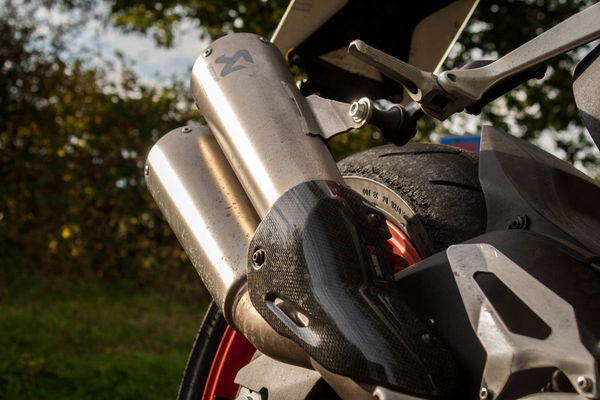
Ducati 959 Panigale: Engine
But I didn’t have to put up with that for long and pretty soon London’s skyline was growing distant in my mirrors as the thrappy bark from the Akrapovic silencers reached a high-revving crescendo as lamp posts gave way to hedgerows and an almost traffic-free A272. The Akra cans give some more depth to the 959’s sound once the engine is spinning with intent but I’m sure the bike lacks some of the 899’s resonant low-end boom. I was a little disappointed at how quiet it was, but that’s Euro4 for you.
The 959’s sound is the only underwhelming thing about it (and is easily remedied). With 157hp and 79.2lb/ft of torque available at my right hand from the 955cc L-Twin Superquadro engine, there’s more than enough power for the road.
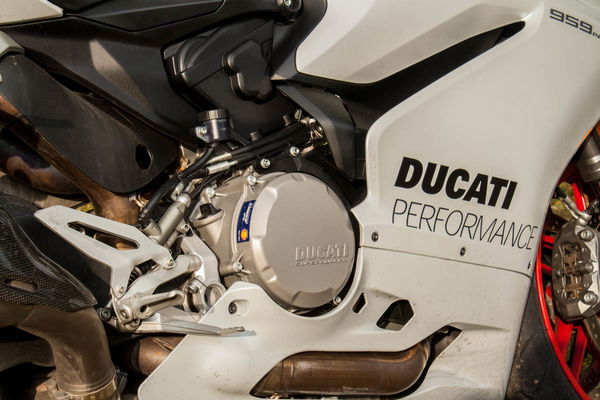
Crossing Salisbury Plain in rapid fashion is where I fell in love with the 959’s engine and the fun that comes once the rev counter clears 7,000rpm. Above 7k, there’s an exciting urgency to the Panigale that blew apart my expectations that, being a V-twin and all, it would be less happy to rev hard. But no, the 959’s desire to spin fast means it gives its best when chasing the limiter.
Ample but not extreme power means that it’s an engine that can be explored on the road - the 959 can be pinned while its slick gearbox and quickshifter get a workout, rather than leaving all riding duties to one gear. It means that on a fast and flowing A-road, the 959 delivers and an engaging and exploitable ride. The closest thing I can relate it to is a 600 - a bat shit fast one.
Ducati 959 Panigale: Brakes
The engine is matched by an equally good set of brakes. The front is anchored by a pair of Brembo M4.32 four-piston radial mount calipers and 320mm semi-floating discs. The first tug of the lever didn’t blow my mind with the ferocity of its bite, but there’s loads of power there, backed up by superb feel through the lever.
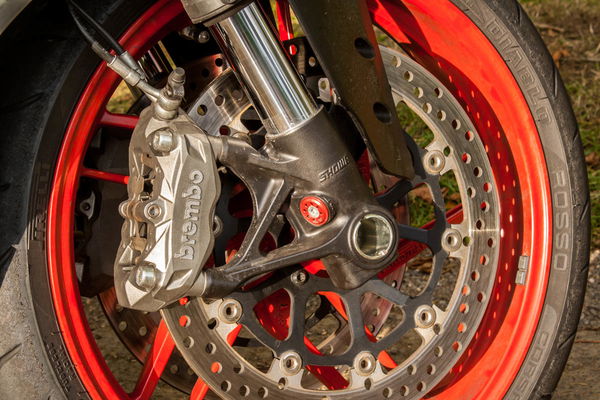
The brakes contribute to a stunningly assured front end, for which the fully-adjustable Showa BPF forks deserve a load of credit. On the road, the suspension is supportive and firm-but-forgiving enough on all but the worst surfaces. The feel on offer from the front suspension is sublime actually, and gave me huge confidence in the front end. Loading up the front on the approach to sharp bends results in an assured, controlled and planted feeling from the front. It gave me the confidence to brake and turn in as late as I wanted and I always felt like I could do what I wanted with the front of the bike, so mid-corner corrections were never a problem and although the road isn’t the place to get near this bike’s handling potential, it’s wonderful.
The fully-adjustable Sachs rear shock also worked really well for me, but could feel a little harsh over rough surfaces.
Ducati 959 Panigale: Comfort
Comfort wasn’t the issue that I’d anticipated. The riding position is what you’d expect from looking at it – focused. In town, I frequently had sore wrists but all was forgiven once I was devouring a fast A-road. The seat, thin as it might be, isn’t too bad either – even after an hour on the motorway.
The majority of my journey to Wales was blissful thanks to dry, empty roads and a bright sky but as I got closer to the Severn Bridge, I could see a wall of black clouds and in the land of sheep, leeks and dragons, it was obviously hosing it down. It always rains when I go to Wales, so I guess I shouldn’t have expected anything different. Sure enough, as I approached the toll booth for the bridge, the sky properly opened up and for the first time, I flicked the bike into Wet mode.
Switching between modes is simple with the control on the left switchgear and the 959 has three modes – Wet, Sport and Race. The bike’s traction control, ABS level and engine braking can also be altered via the same controls. Wet mode makes the bike easier to ride in the wet (surprisingly…) thanks to a softened power delivery and a reduction in power to 100hp, plus and lots of ABS and traction control. Going from Race to Wet is a noticeable step and when riding in the rain it’s as if the electronics are putting a reassuring hand on your shoulder when there’s potential for things to get hairy.
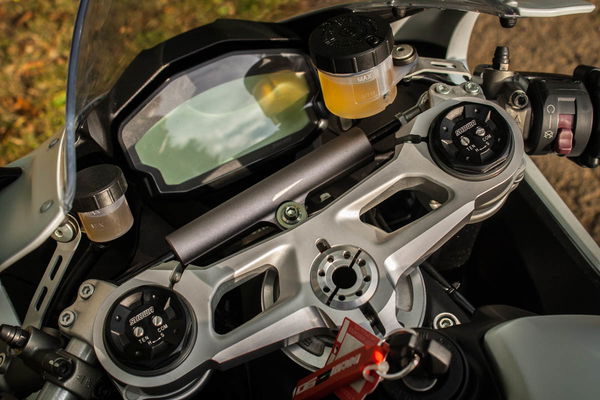
Before the rain came, I was running the 959 in Race mode with traction control set to level four (out of eight, with eight being the most intrusive) and ABS at level 2. Race mode delivers the full 157hp with a more responsive throttle map than Sport (which also gives full power, but all modes can be customised). Race mode was great in the countryside but for less enthusiastic riding in the dry, Sport was my preferred choice.
The electronic systems are very good and the traction control works with subtley. Several times I could see the light flickering with no discernible dip in performance apart from under hard throttle openings in torrential rain, when it’s possible to feel the engine being restrained as the revs climb.
In terms of tech, there were two things I wasn’t keen on – the slightly fiddly means of accessing the menu to changes ride mode settings and the EBC – Engine Braking Control. EBC effectively raises the revs under hard braking and downshifting to keep the bike balanced, but I found it irritating and didn’t enjoy seeing the rev counter move of its own accord.
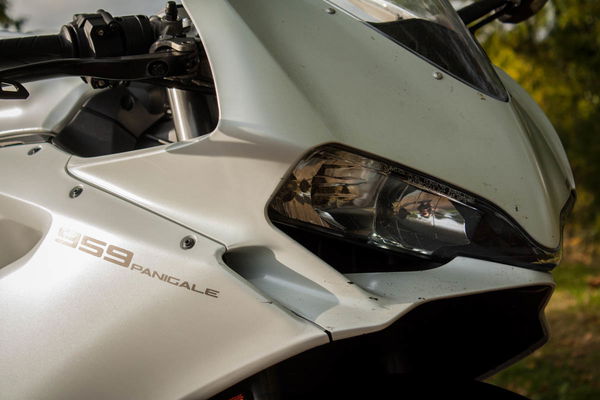
Should I buy the Ducati 959 Panigale?
When I arrived at my friend’s place the first thing he said when he saw the bike was, ‘Christ, that looks like a serious bike of kit.’ It definitely is, I told him. He doesn’t ride bikes and couldn’t understand how anyone could ride the 959 on the road and not end up frustrated or dead.
That’s a clumsy way of identifying why this is such a superb road bike – it’s got more than enough power but not so much that it’s a handful. The rev happy engine invited me to ride it hard and when I did that, I was rewarded because most of its performance isn’t wildly off-limits or a handful on the road. Sublime handling and a great ride quality from excellent suspension plus fantastic brakes and a comprehensive suite of electronics compliment the engine superbly on the road. To top it off, it looks gorgeous; I know the exhausts are contentious but I quickly got over it and so will you once you ride one on your favourite road.
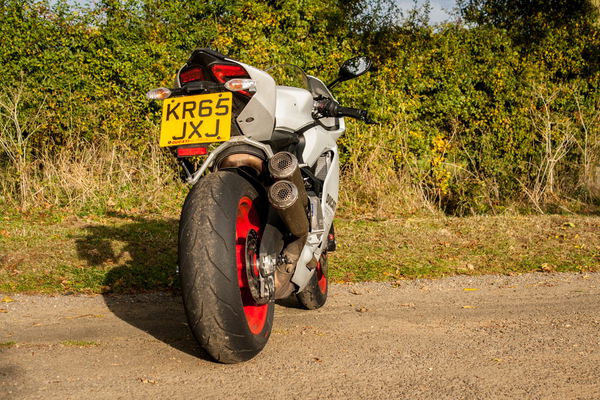
Ducati 959 Panigale: Specifications
- Price: £13,587 (£13,387 for the red one)
- Engine: 955cc ‘Superquadro’ L-twin, four valves per cylinder, liquid cooled
- Power: 157hp at 10,500rpm
- Torque: 79.2lb/ft at 9,000rpm
- Suspension: Front – Fully adjustable Showa BPF forks / Rear – Fully adjustable Sachs shock
- Brakes: Front – Two four-piston radially mounted Brembo M4.32 calipers with 320mm semi-floating discs / Rear –Two-piston caliper and 245mm disc
- Weight: 200kg (wet, with 90% full tank)
- Seat height: 810mm
- Tank capacity: 17 litres
- Colours: Red and white
